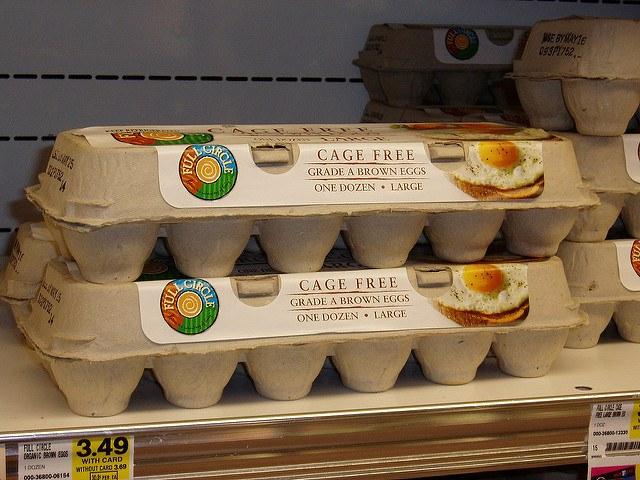
Life is slowly improving egg-laying hens in America. Publix, the fifth largest grocery store chain in the country, is the latest to make a cage-free commitment. The company will transition to 100 percent cage-free eggs by 2026.
That means fewer hens will be trapped in battery cages that are only about 67 square inches, which is smaller than a sheet of letter-sized paper. The cages are so small that hens can’t spread their wings or engage in other natural chicken behaviors.
Publix already sells seven varieties of cage-free eggs, which is “more than most traditional retailers,” the company claims on its website. It also says it is “diligently working” with egg suppliers, industry leaders, governmental agencies and non-governmental organizations to “better understand the timing of converting our shell egg supply to completely cage-free.”
Why will it take so long for Publix to make the switch? The grocery chain lists problems associated with the transition, which include the speed of the industry change. And make no mistake: The grocery sector is changing with regard to battery cages.
Publix’s announcement means all of the top 25 grocery store chains in the U.S. have made commitments to go cage-free. Or as Wayne Pacelle, president and CEO of the Humane Society of the United States (HSUS), wrote in a blog post on Friday, the announcement “represents what could be a final nail in the coffin for the long era of cage confinement of hens.”
Publix’s announcement comes after an extensive campaign by animal welfare groups targeting the grocery store chain. Mercy For Animals ran a three-month campaign called "Hen Hell" that included a video exposing cruelty to hens in the company’s supply chain. As part of the "Hen Hell" campaign, volunteers spread leaflets at Publix stores in the Southeast and conducted consumer call-ins. A TV ad was also part of the campaign.
HSUS launched a website for its "Caged for Publix" campaign that asked concerned consumers to call the grocer and urge it to make a cage-free commitment. A Change.org petition also called on Publix to commit to 100 percent cage-free eggs.
Hillandale Farms, one of the leading shell egg suppliers in the U.S., recently announced it will shift to cage-free systems. All of the company’s future farm expansions will be with chickens housed in cage-free systems.
These are just the latest in a slew of similar announcements in recent years. Less than a year ago, McDonald’s announced it would transition to cage-free eggs. Not long after, a number of other companies -- including Walmart, Costco, Denny’s, IHOP, KraftHeinz and Nestle -- made similar commitments.
Why are so many companies making commitments to phase out cruel battery cages from their egg supply chains? It is what consumers want. Survey after survey indicates that consumers favor buying products from food companies whose supply chains are free of animal cruelty. In a 2013 survey by the Hartman Group, 65 percent of respondents said they want animals to be raised in as natural an environmental as possible. A year later, almost 95 percent of those surveyed by American Humane said they are “very concerned” about the welfare of farm animals.
Hillandale Farms acknowledged consumer demand played a big role in its shift to cage-free systems. In a statement, the company acknowledged that consumers want cage-free eggs, calling cage-free systems “a practice that is considered progressive by today’s consumers.”
Image credit: Flickr/Joel Kramer

Gina-Marie is a freelance writer and journalist armed with a degree in journalism, and a passion for social justice, including the environment and sustainability. She writes for various websites, and has made the 75+ Environmentalists to Follow list by Mashable.com.














